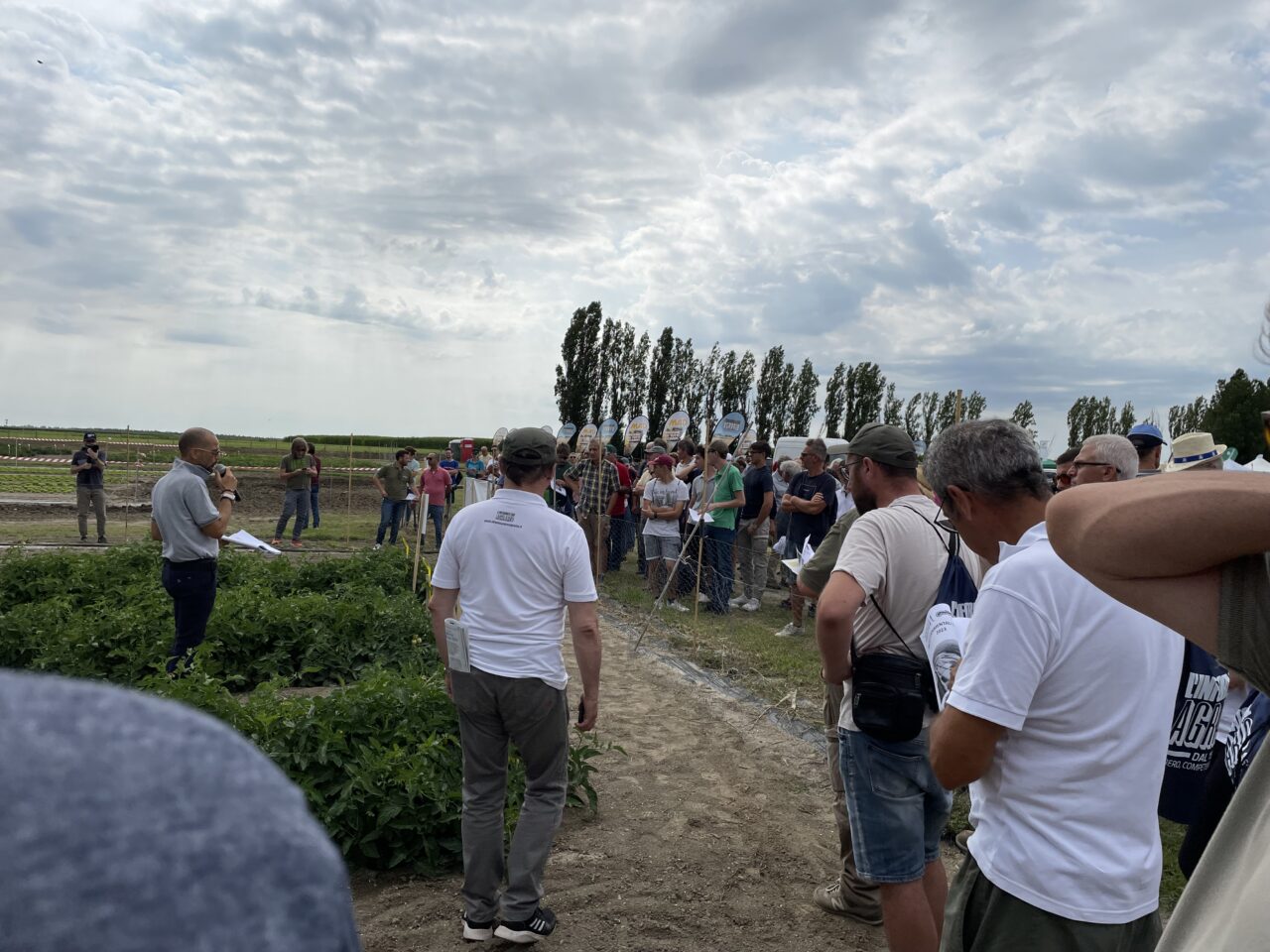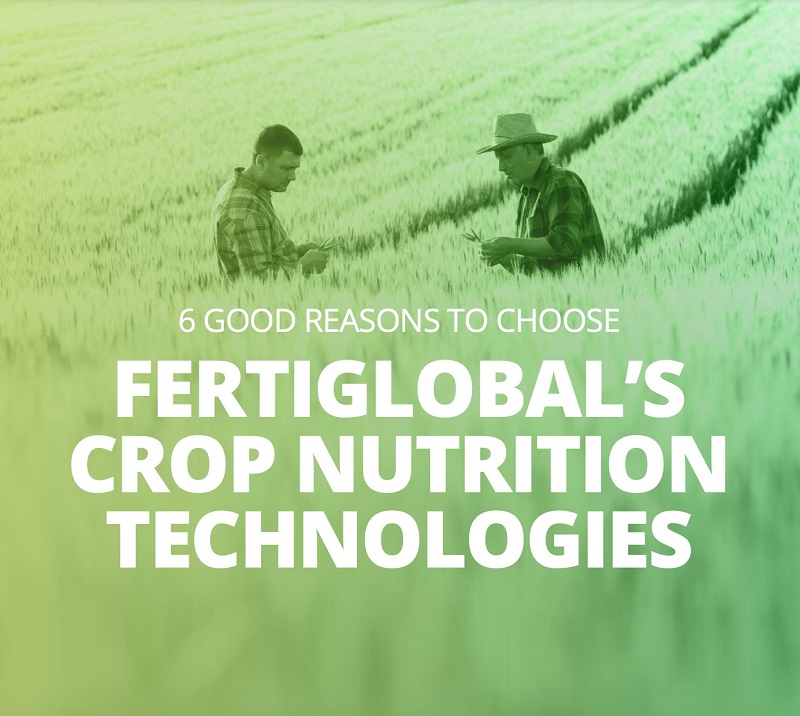Biostimolanti in campo
A new approach to crop protection: how FertiGlobal defines innovation
Independent trials show the way
This leading Italian publication field-tested FertiGlobal’s products. Here’s what they found.
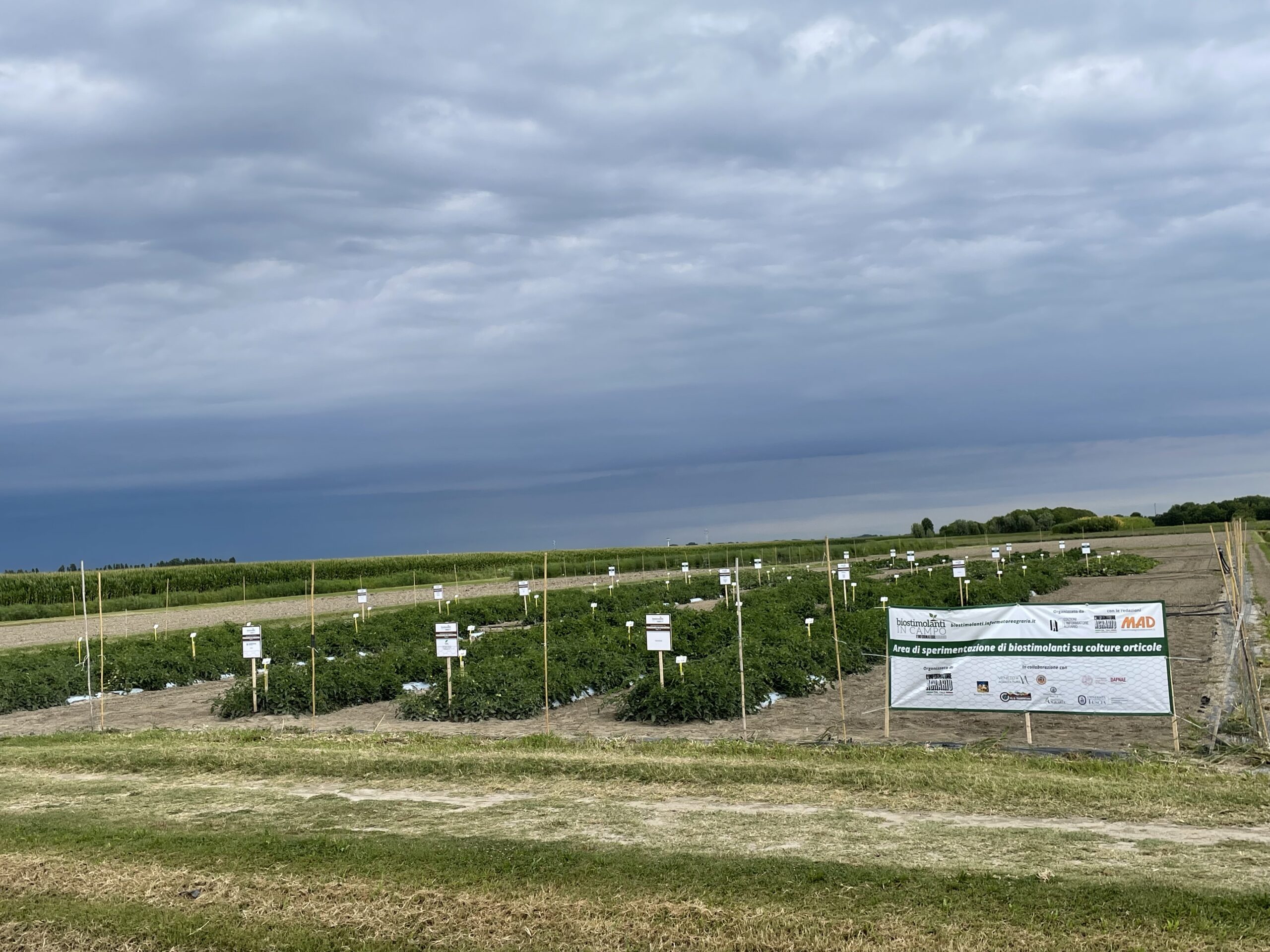
Established in 1945, L’Informatore Agrario is one of the most respected agricultural publications in Italy. Read weekly by more than 40,000 people, including breeders and technicians, farmers and agritech entrepreneurs, it’s come to be seen as one of the most qualified – and fiercely independent – sources of agronomic information available to the Italian crop production sector.
So, it’s not surprising that when the magazine launched an innovative new project – Biostimolanti in Campo (Biostimulants in the Field) – to help them understand the novel and exciting world of biostimulants, and how to incorporate them into their production systems, they attracted considerable support.
Not only is the project run in collaboration with the Centro Sperimentale Ortofloricolo Po di Tramontana di Veneto Agricoltura – the Venetian agency for innovation in the land-based industries – but it’s also garnered the backing of OP Isola Verde, a consortium of 19 businesses cultivating more than 280ha of greenhouse crops under organic and integrated crop management regimes.
And as if that’s not enough, the whole scheme’s scientific rigour is co-ordinated by four of Italy’s leading universities: Tuscia, Salerno, Naples and Padua. This project is about as independent as it can be.
“It’s that striking independence that attracted FertiGlobal to get involved in the project,” says Mohammed Mahboubi, Area Manager Mediterranean. “Biostimulants present a valuable and viable set of tools to help farmers improve the yield and quality of horticultural crops.
“With the EU’s Farm to Fork strategy encouraging a reduction in the use of agrochemicals and synthetic fertilisers, there’s a distinct role for biostimulants within farmers’ production strategies.”
Initially, the project covers just four crops: processing tomatoes, melons, zucchini (courgettes) and rocket.
“With the novel nature of many biostimulants, and the rapid R&D progress that FertiGlobal and others like us are achieving, there’s a real need for independent, farm-level research to help with practical knowledge transfer to improve usage and on-farm performance across a wide range of crops.
“Biostimolanti in Campo does just that. It’s a collaborative approach, bringing together not only the universities’ rigorous scientific overview and the expertise of the research centres, but also commercial diversity: it’s very promising that FertiGlobal is joined by other companies active in the biostimulant sector, to engage in this essential undertaking.”
Mohammed points out that the independent nature of the project allows evaluation of more than just the effect of biostimulants: it’s also about their economic convenience. “When manufacturers release information about margins and cost-benefit ratios, it can sometimes be perceived as biased, but through Biostimolanti in Campo we can demonstrate an impartial economic assessment.”
Processing tomatoes were one of the crops for which FertiGlobal supplied three products for the 2023 trials programme: ALPAN, CAUTHA and CREO.
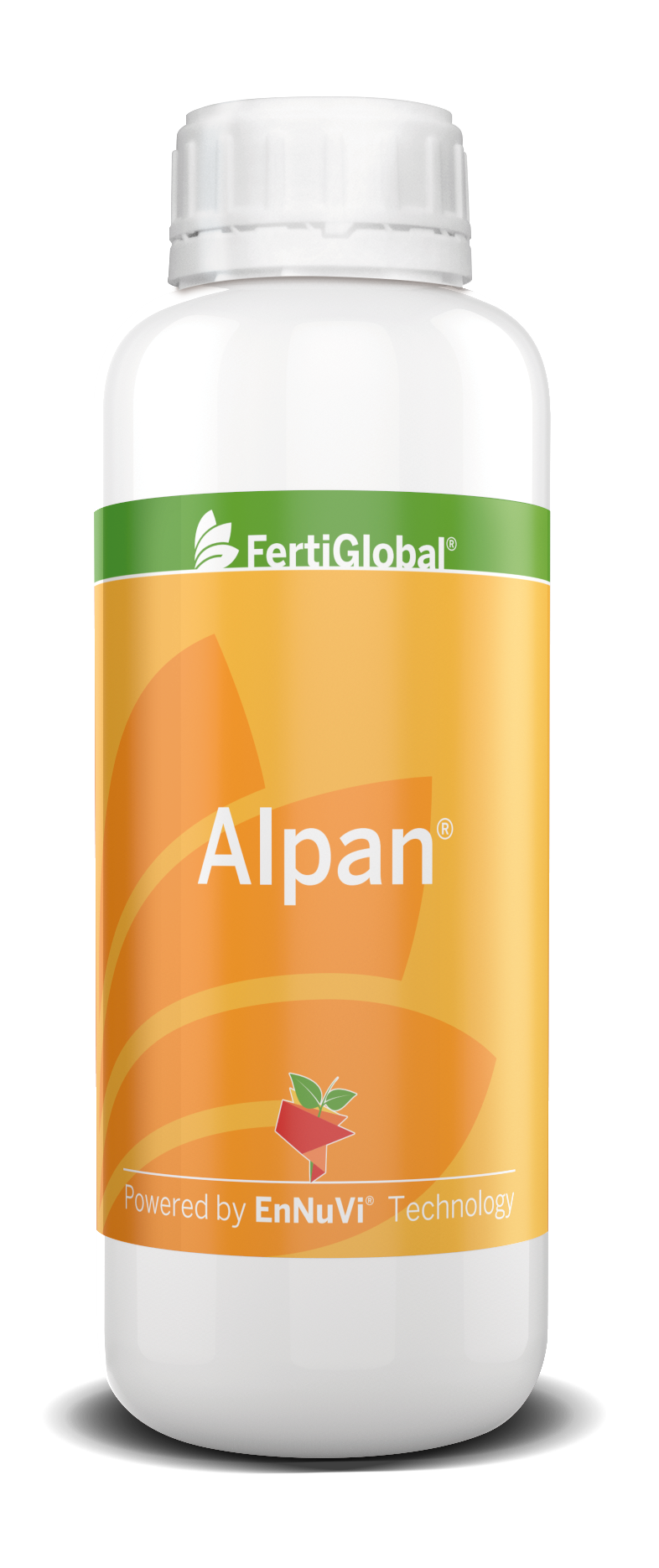
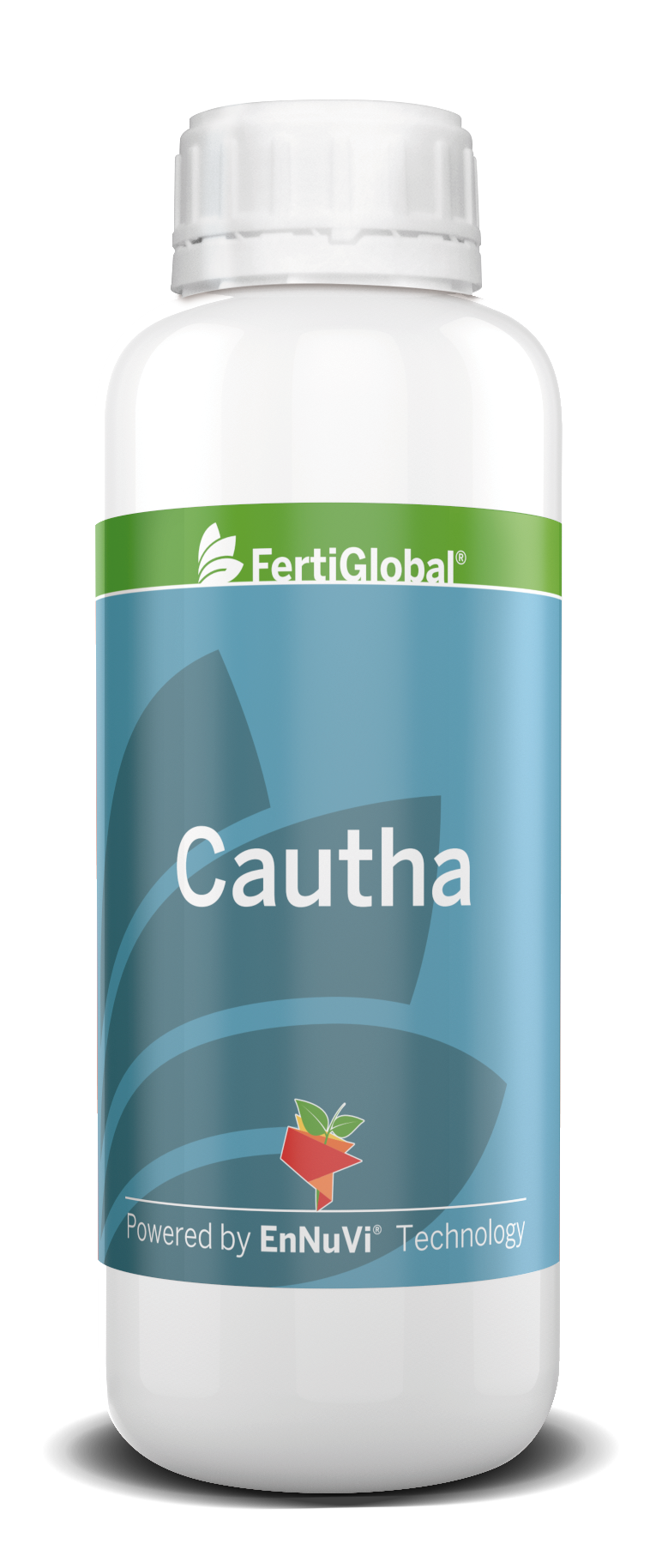
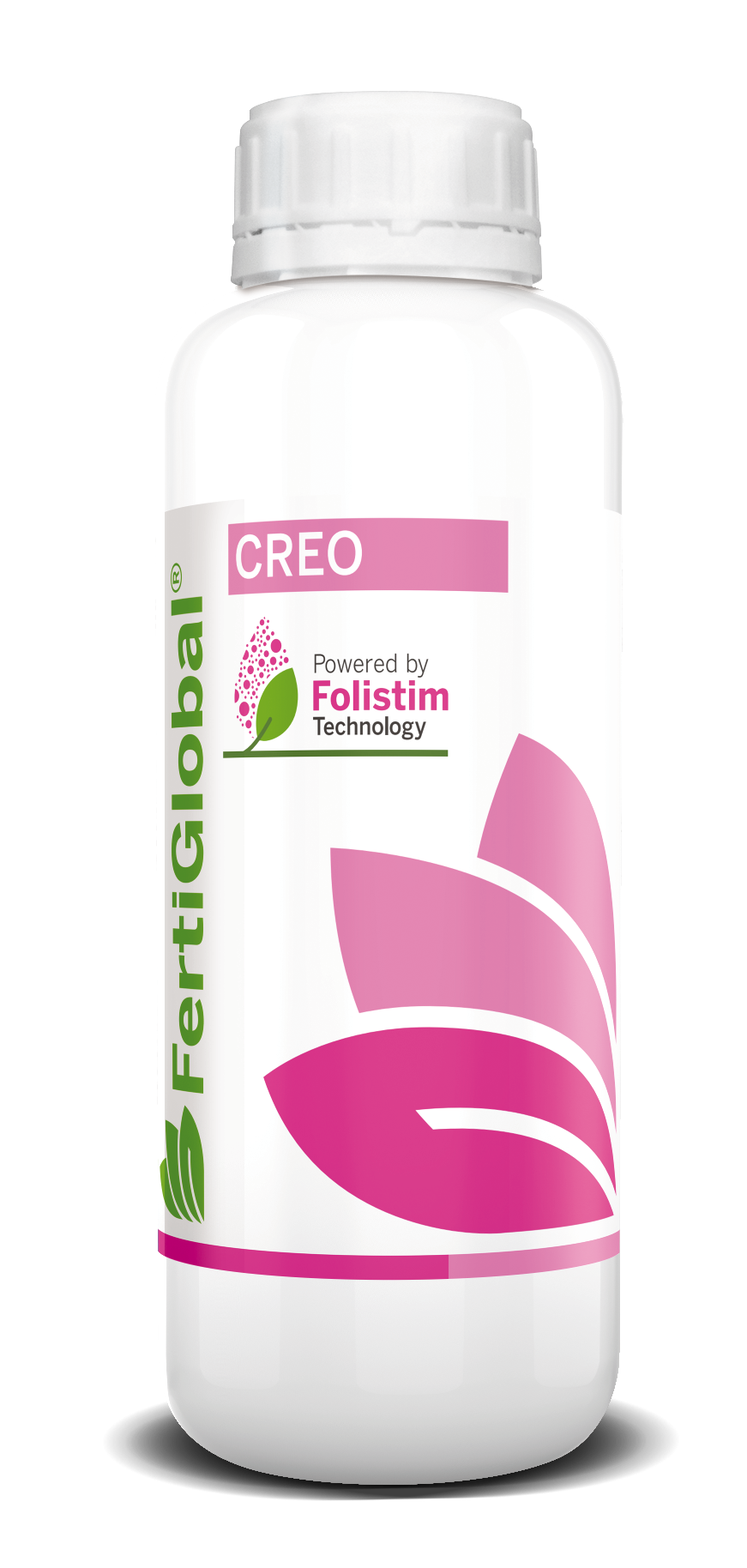
ALPAN, a concentrated suspension of Mg and bioactive polyphenols, was developed to improve the translocation of photo assimilates – the products of photosynthesis – to promote root growth and increase sugar production. It also serves to bolster plants’ natural defence mechanisms and offers some protection against drought stress.
CAUTHA comprises a similar set of bioactive polyphenols, this time co-formulated with Ca. Reducing the effect of biotic and abiotic stress on plants, it maintains chlorophyll levels and helps the crop accumulate valuable osmo-protective molecules.
CREO is a foliar fertiliser fortified with L-methionine. The addition of this important amino acid serves to improve the uniformity of fruit ripening and increases Brix.
A programme comprising all three products was devised by the independent trials team:
| Weeks since transplanting | Crop growth stage | Product applied | Rate | Water volume |
| 7 | Fruit growth commencing | CAUTHA | 2L/ha | 1000L/ha |
| 8 | CAUTHA | 2L/ha | 1000L/ha | |
| 9 | Fruit growth complete | CAUTHA+ALPAN | 2L/ha | 1000L/ha |
| 10 | ALPAN | 2L/ha | 1000L/ha | |
| 11 | Beginning to mature | CREO | 3L/ha | 1000L/ha |
| 12 | 30% fruit mature | CREO | 3L/ha | 1000L/ha |
| 13 |
“We were very pleased with the results,” Mohammed enthuses. “The FertiGlobal protocol delivered a 17.6t/ha increase over the farmer standard practice. At prices in place at the time, that would add nearly €3,500/ha to a grower’s margin.
“But it wasn’t just quantity – yield – that improved; we saw some dramatic increases in quality too.”
Overall, fruit from treated plants displayed better vigour, and was more consistent – an important parameter for transport and processing. There was also a slight increase in
°Brix.
“This is but one trial”, says Mohammed, “albeit one carried out independently by well-regarded and prestigious organisations.
“However, it clearly shows the ability of well-developed, science-led biostimulants to improve not just profitability on-farm – that €3,500/ha increase comes from an investment of just €200/ha in input costs – but environmental performance too.
“One-fifth of the treated fruit was rejected, compared to one-quarter from the control plots. We know we have a problem with food waste, but efforts to reduce it begin at the farm, way before it reaches the fork.
“We look forward to continuing to work with L’Informatore Agrario on Biostimolanti in Campo,” Mohammed concludes. “There’s work still to be done: to progress further with the on-farm knowledge transfer, yes, but also in the exciting direction of seeing how biostimulants and innovative solutions can be used to reduce both plant protection products input and irrigation demands while maintaining production output and efficiency.
“Biostimulants, bioactivators and innovative nutritive solutions really are the new frontier for crop production.”


